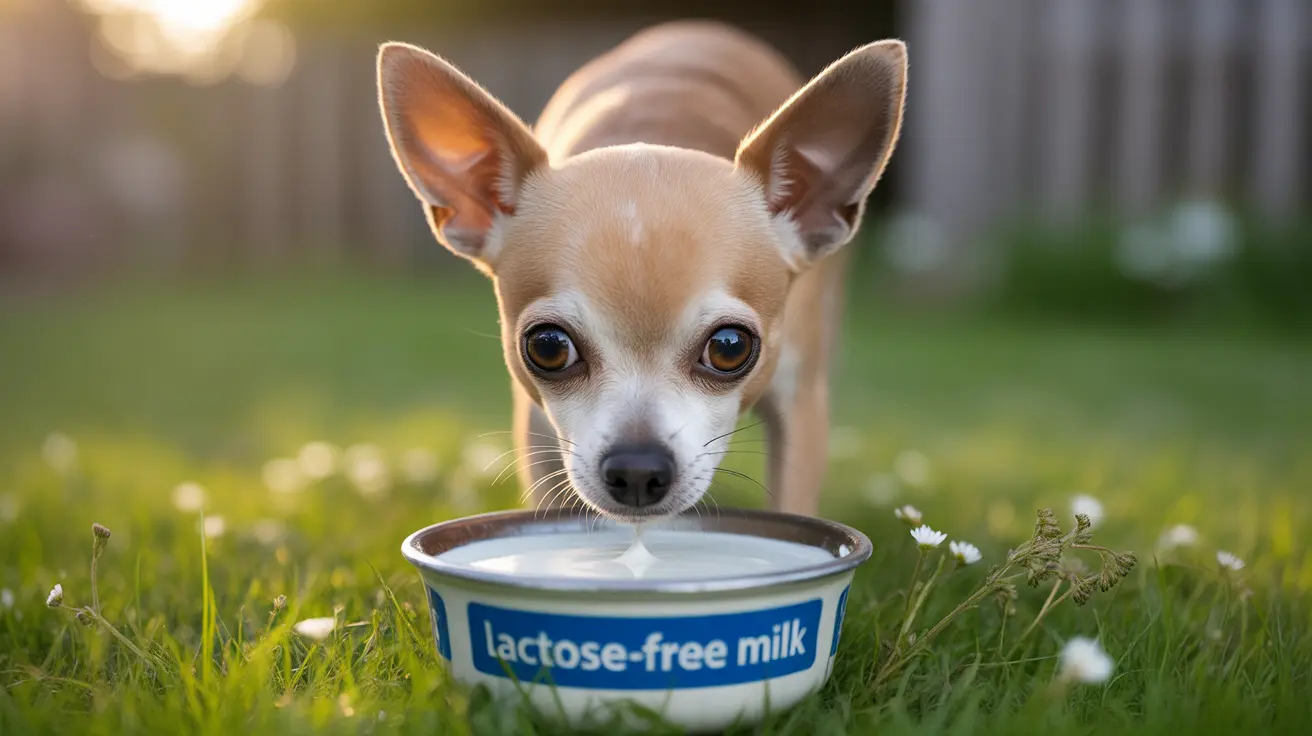Many pet owners wonder about giving their dogs milk and dairy products. While dogs can have milk in small amounts, it's crucial to understand that not all dogs can safely consume dairy. This comprehensive guide will help you make informed decisions about including milk in your dog's diet.
Just like humans, dogs can have varying levels of tolerance for dairy products. While some dogs might enjoy an occasional milk treat without issues, others may experience digestive problems due to lactose intolerance. Let's explore everything you need to know about dogs and milk consumption.
Understanding Lactose Intolerance in Dogs
Most adult dogs are lactose intolerant because they produce insufficient amounts of lactase, the enzyme needed to digest lactose (milk sugar). This natural decrease in lactase production occurs after puppies are weaned from their mother's milk.
Unlike human babies, who often retain the ability to digest lactose into adulthood, dogs typically lose this capability as they mature. This biological change means that giving milk to adult dogs can lead to digestive issues.
Signs Your Dog Can't Tolerate Milk
Watch for these common symptoms of lactose intolerance after giving your dog milk:
- Diarrhea (usually within 12 hours)
- Vomiting
- Bloating and gas
- Stomach discomfort
- Loss of appetite
- Lethargy
Safe Ways to Introduce Dairy to Dogs
If you want to try giving your dog milk or dairy products, follow these guidelines:
- Start with very small amounts (1-2 teaspoons)
- Observe your dog for 24 hours after introduction
- Choose low-lactose options like hard cheeses
- Never exceed 10% of daily caloric intake
- Always provide fresh water
Alternatives to Regular Milk
For dogs who can't tolerate regular milk, consider these alternatives:
- Lactose-free milk specifically formulated for dogs
- Small amounts of plain, low-fat yogurt
- Cottage cheese (lower in lactose)
- Commercial puppy milk replacers (for puppies only)
Health Considerations and Risks
Even if your dog can tolerate milk, there are several health factors to consider. Milk is high in calories and fat, which can contribute to obesity. Additionally, some dogs may develop allergies to milk proteins, separate from lactose intolerance.
Regular consumption of dairy products can also lead to:
- Weight gain
- Pancreatitis
- Digestive issues
- Skin problems
- Ear infections
Frequently Asked Questions
Can dogs safely drink milk, and what are the risks of lactose intolerance?
While dogs can technically drink milk, many are lactose intolerant. The main risks include digestive upset, diarrhea, and vomiting. It's safest to avoid milk or give very small amounts only after testing for tolerance.
How can I determine if my dog is lactose intolerant, and what are the symptoms to look out for?
Monitor your dog after giving a small amount of dairy. Signs of lactose intolerance include diarrhea, vomiting, bloating, gas, and decreased appetite, usually appearing within 12 hours of consumption.
What are the safest types of dairy products for dogs to consume, and how should they be introduced?
Hard cheeses and plain yogurt are generally safer due to lower lactose content. Introduce any dairy product gradually, starting with tiny amounts and watching for adverse reactions.
Are there any nutritional benefits to giving dogs milk, or can these nutrients be found in other foods?
While milk contains calcium and protein, dogs on complete commercial diets already receive these nutrients. There's no nutritional requirement for milk in an adult dog's diet.
How do I introduce milk or dairy products to my dog without causing digestive issues, and what are some lactose-free alternatives?
Start with very small amounts (1-2 teaspoons) and observe for 24 hours. Lactose-free alternatives include special dog milk formulas, small amounts of plain yogurt, or cottage cheese.
Conclusion
While dogs can have milk in small amounts, it's not necessary for their diet and may cause health issues. If you choose to give your dog dairy products, do so cautiously and in moderation, always watching for signs of intolerance. When in doubt, consult your veterinarian about the best dietary choices for your specific pet.






